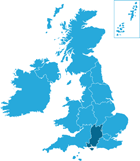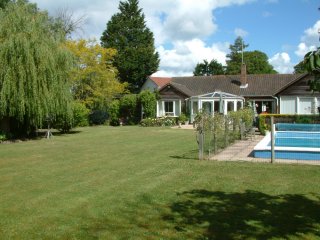|
 CONTACT
CONTACT
Parkinson's - South Central.
FREE* Education & Training for Healthcare Professionals &
Domiciliary workers (home carers), mainly in Hampshire
but also including parts of W. Sussex, Berkshire & Oxfordshire.
Welcome. This page is provided by voluntary supporters of Parkinson's UK
for the South Central area. The sessions of training and education are
listed below.
|
 |
|
At any level of healthcare (homecare or professional) you are
welcome to join us. Certificates are provided that will enhance
your c.v and career prospects, home-carers will be much encouraged and
supported.
Simply contact us
for further details or call 01243 573021. Thank you.
These sessions are Free
and Certificated:
|
Education and Training Sessions
|
| March 17th, Monday |
New Forest area. Venue: New Milton |
| March 19th, Wednesday |
Surrey/ Hants/ Sussex borders. Venue: Paxhill |
| April 8th, Tuesday |
Central Hampshire. Venue: Basingstoke |
| April 17th, Thursday |
Hants South, Venue: Waterlooville |
| April 25th, Friday |
Isle of Wight. Venue: Ryde. |
| April 29th, Tuesday |
Southampton, Above Bar Church |
|
 |
What is Parkinson's
Parkinson's is a progressive neurological condition whereby people
have an insufficiency in their brains of the chemical dopamine because some nerve cells have died.
|
Without dopamine people can find that their movements become slower,
taking longer to do things. The loss of nerve cells in the brain causes the symptoms of Parkinson's to
appear. There is currently no cure for and we don't yet know why people get the condition.
With your help we are doing all that we can to find a cure.
Parkinson's doesn't directly cause people to die, but symptoms do get worse over time.
One person in every 500 has Parkinson's. That's about 127,000 people in the UK. Most people who get Parkinson's are aged 50 or over but younger people can get it too. One in 20 is under the age of 40.
Everyone with Parkinson's has different symptoms. The main ones are tremor, rigidity and slowness of movement. As well as affecting movement, people with Parkinson's can find that other issues, such as tiredness, pain, depression and
constipation can have an impact on their day-to-day lives. Symptoms will differ from one person to the
next.
The symptoms can be controlled using a combination of drugs, therapies and occasionally surgery.
As Parkinson's progresses, an increased amount of care and support may be required, although many people maintain a good quality of life with limited care or treatment.
It's not easy to diagnose Parkinson's. There are no laboratory tests so it's important that the diagnosis is made by a specialist. The specialist will examine the person for any physical signs of Parkinson's and take a detailed history of the symptoms
they are experiencing. Everyone's experience of Parkinson's is different. We have a lot of information for people with Parkinson's, their family, friends and
Carers on topics relating to everyday life with Parkinson's.
Contact
us for more details
Parkinson's covers the entire UK, for details in
your area please use any of the links above.
* Please note that in some areas training and education
is not entirely "free" as we ask for only a very small
contribution (generally £5-10) as a contribution to our costs of
providing the venue and refreshments etc. Thank you.
|









